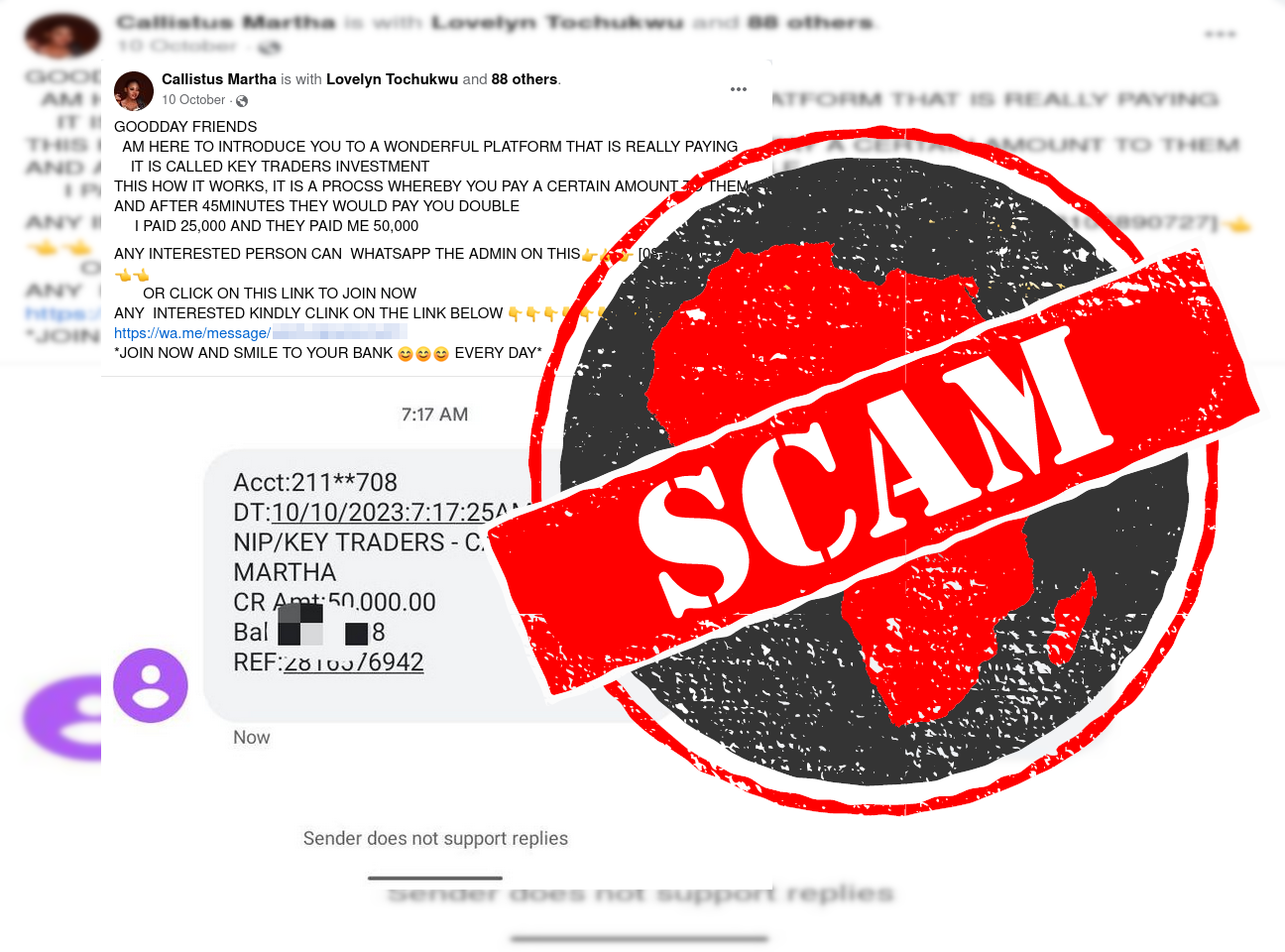IN SHORT: Facebook posts are promoting an investment platform called Key Traders. But be warned, it is a scam.
“AM HERE TO INTRODUCE YOU TO A WONDERFUL PLATFORM THAT IS REALLY PAYING IT IS CALLED KEY TRADERS INVESTMENT,” reads a post on Facebook.
The 10 October 2023 post claims that the platform can double users’ money in just 45 minutes.
It also includes a WhatsApp link and encourages those interested to reach out.
With Nigeria’s inflation on the rise, many will be looking for alternative ways to make money. This could lead to social media users losing what little they have to shady investment schemes.
Similar posts can be found here and here.
But is the investment platform to be trusted? We checked.

Signs of a scam
The posts say that any amount invested will be doubled in 45 minutes. This return on investment is obviously too good to be true.
In a tweet in 2022, Nigeria’s Economic and Financial Crimes Commission, which is responsible for combating financial crimes, urged users to be wary of businesses offering unrealistic returns.
The posts ask users to send messages via WhatsApp to “join”. This is a common trick used by fraudsters to steal users’ personal or banking details.
We clicked on the WhatsApp link in one post and were prompted to send an automated message that said: “Hello Sir I’m interested in the platform (Jama Life Global Investment Platform) how can I invest?”
This is suspicious, as the Facebook post advertised “Key Traders Investment”, not “Jama Life Global Investment Platform”.
Africa Check has previously exposed a platform with a similar name – Jama Life Global Helpers – as an investment scam.
A search for “Key Traders Investment” on Nigeria’s business register came up empty. Businesses are required to register with the country's Corporate Affairs Commission before they can operate.
All signs point to Key Traders Investment being a scam.
Read our guide on how to spot risky investment schemes here.
Republish our content for free
For publishers: what to do if your post is rated false
A fact-checker has rated your Facebook or Instagram post as “false”, “altered”, “partly false” or “missing context”. This could have serious consequences. What do you do?
Click on our guide for the steps you should follow.
Publishers guideAfrica Check teams up with Facebook
Africa Check is a partner in Meta's third-party fact-checking programme to help stop the spread of false information on social media.
The content we rate as “false” will be downgraded on Facebook and Instagram. This means fewer people will see it.
You can also help identify false information on Facebook. This guide explains how.


Add new comment